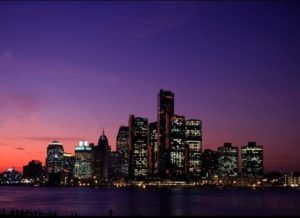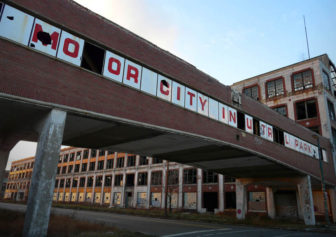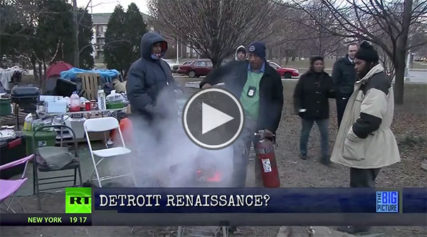
“In case we have missed someone who has legitimate affordability problems, this will allow them to come to us to see if they can work out payments,” department spokesman Bill Johnson said, according to published reports. “We’ve always maintained that what we were doing was a collection effort — not a shutoff effort.”
Activists have used protest and marches to call attention to the issue after it was revealed that the city in March began shutting off water service for up to 3,000 homes and businesses a week, to stop the utility from hemorrhaging money.
The situation got so bad that activist groups called on the United Nations to intervene, seeking help in a letter last month to the U.N. Special Rapporteur on the Human Right to Safe Drinking Water and Sanitation.
The groups accuse Detroit Water and Sewerage Department of charging unaffordable rates to Detroit citizens in an effort to slough off low-income customers and make it more attractive for private takeover. However, the utility says it’s just trying to stay afloat—though the city acknowledges that at least a partial privatization of DWSD is being considered.
The DWSD is responsible for $5 billion of Detroit’s $18 billion in debt.
Of the DWSD’s 323,000 accounts, nearly 50 percent were behind on their payments in March, according to a story in the Detroit Free Press, leaving the utility with $175 million in outstanding bills.
In a lawsuit filed as part of the city’s bankruptcy case, residents asked U.S. Bankruptcy Judge Steven Rhodes to restore water service to residential customers, alleging that the city is violating the constitutional rights and contractual rights by shutting off water for those who owe back payments.
In federal court, Darryl Latimer, director of the Detroit Water and Sewerage Department, told Rhodes that the city will use media, social media, churches and community groups to inform residents about payment plans and financial assistance for people with documented inability to pay bills.
“We need to time to make sure our aggressive communications efforts reach customers,” Latimer told the judge.
The NAACP Legal Defense Fund claims that the water shutoffs were racially motivated.
“That (the shutoffs are) being done in a discriminatory fashion; and they should at least take a look at whether there’s a better way to do this that doesn’t affect the most vulnerable citizens — the majority of whom are African-American here in Detroit,” Veronica Joice of the NAACP Legal Defense Fund told the media.
Attorney Alice Jennings, who filed the lawsuit on behalf of Detroit residents, said large corporations owe hundreds of thousands of dollars to the city of Detroit Water and Sewerage Department.
“These companies are basically Caucasian companies,” Jennings said. “The folks who are being cut off are almost one hundred percent African-American.”
Media reports indicate the Detroit Water and Sewerage Department stopped service to about 7,200 homes and businesses in June, compared to 1,570 in the same month last year. About 43 percent had their water restored after customers paid or worked out payment plans.
At yesterday’s bankruptcy hearing, Rhodes said the people of Detroit “need their water,” but added, “There’s nothing for me to do about that today.”
Water Department spokesman Greg Eno admitted after the hearing that the department has been lax over the years, letting the bills pile up.
He said people who now owe more than they can afford are being asked to come in and apply for assistance through the Water Affordability Program.
“It also teaches them, or works into their budget, monies that would be dedicated to their water bill, because they have to make a contribution every month,” he told WWJ Radio. “This is not a program where you get everything given to you and you contribute nothing.”
“We don’t have, you know, a bottomless cup of funds,” he said, adding that’s why it’s important that affected customers come in as soon as possible.
As for corporations owing money, Eno said, “The balances they have accrued — and, yes, some of them are significant, and we’ve made that list public — had been a result of storm water runoff charges; many of which are in dispute right now.”
Eno said corporations are being given shutoff notices, too, adding that Chrysler and others have already paid up millions in overdue bills.
Last week, an estimated 2,000 people—including Avengers actor Mark Ruffalo—from across the nation waged a protest downtown, with nine people being arrested.
City officials said they are also fighting against rogue crews that follow city employees as they shut off the water with a special tool near the sidewalk. The crews go to residents and offer to turn the service back on—for a small fee. Johnson said it’s happened at more than 500 addresses since March.
“They knock on the door and tell people, ‘For $50, I’ll turn the water back on.’ We’ve caught them,” Johnson said.


